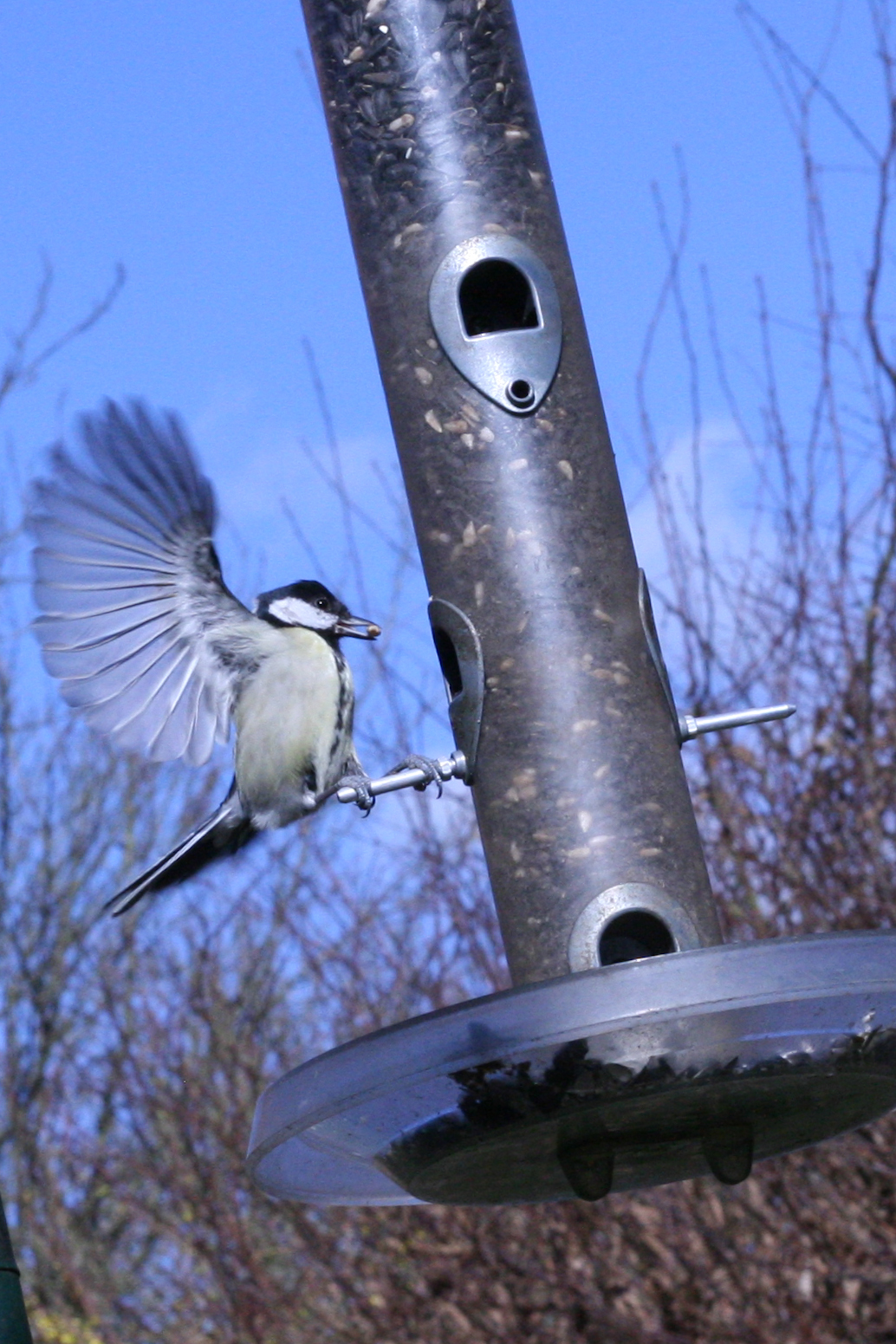Adulterous Male Birds Don't Put Eggs in One Basket

Get the world’s most fascinating discoveries delivered straight to your inbox.
You are now subscribed
Your newsletter sign-up was successful
Want to add more newsletters?

Delivered Daily
Daily Newsletter
Sign up for the latest discoveries, groundbreaking research and fascinating breakthroughs that impact you and the wider world direct to your inbox.

Once a week
Life's Little Mysteries
Feed your curiosity with an exclusive mystery every week, solved with science and delivered direct to your inbox before it's seen anywhere else.

Once a week
How It Works
Sign up to our free science & technology newsletter for your weekly fix of fascinating articles, quick quizzes, amazing images, and more

Delivered daily
Space.com Newsletter
Breaking space news, the latest updates on rocket launches, skywatching events and more!

Once a month
Watch This Space
Sign up to our monthly entertainment newsletter to keep up with all our coverage of the latest sci-fi and space movies, tv shows, games and books.

Once a week
Night Sky This Week
Discover this week's must-see night sky events, moon phases, and stunning astrophotos. Sign up for our skywatching newsletter and explore the universe with us!
Join the club
Get full access to premium articles, exclusive features and a growing list of member rewards.
Males that stray from the nest for adulterous adventures may leave an opening for their mates to cheat, new research on great tit birds suggests.
While these absentee males end up with more adopted chicks from the female mate's flings, they also leave their own offspring in other nests. On average, the "bold" males have the same number of chicks as males who stay home.
"If a male has a bold personality score, he has more extra-pair young — more of his paternity will come from outside of his own nest than from within," study researcher Samantha Patrick, of the Center for Biological Studies Chizé, in France, told LiveScience. "Because the male is absent, his female is unprotected."
Opportunistically monogamous
Great tit birds are socially monogamous, which means they stick with one partner for life. Based on previous work, though, the researchers knew that the bolder, more adventurous of the species tend to cheat on their partner. The researchers weren't sure if this actually gave the bold males more offspring, since it lets their mates cheat as well.
For three years, the researchers studied a wild group of great tits (Parus major), a small common European and Asian bird, nesting in boxes near Oxford University. The researchers captured wild birds from the area and studied how they reacted to a new environment in the lab. The "bold" birds were more adventurous and inquisitive in the new environment, exploring the nooks and flying from perch to perch.
The researchers took samples of the birds' DNA and released them into the wild. The researchers then used that DNA information to determine which chicks came from which fathers and how this correlated with the dads' boldness scores.
Get the world’s most fascinating discoveries delivered straight to your inbox.
About 13 percent of the chicks were offspring from extra-pair mating by the males, with about half of the nests holding offspring from "adulterous affairs." The males scoring highest on boldness the most likely to have extra-pair chicks. But because these cheating males spent more time away from the nest, their female mates had more chicks from other males as well. In the end, wandering males had no more offspring than their stay-at-home brethren.
"Males that were very bold, that explored very quickly, they were much less faithful to their mate, but they also had less paternity in their nests," Patrick said. "What it showed was that your personality didn't predict your fitness, how many young you had, but it predicted the mating strategy though which you had those young."
Kees van Oers, a researcher at the Netherlands Institute of Ecology, told LiveScience in an email that the study is "very valuable" because, "the role of personality in mating decisions and extra-pair paternity is not well studied." There are slight differences between this study and a previous one by his own group possibly because the study group of birds was larger and enabled the researchers to look closely at the associations between birds and their offspring, or because of the different locations used (his study was in the Netherlands).
Benefits of being bold
Not all of the bold males were as successful cheaters as others, with some fathering one chick outside the nest while others may have fathered four or five. The researchers suggest the bird's surroundings could impact their success: If a bold male is surrounded by shy males, he may be more successful at fathering more offspring with females that aren't his mate.
"It might be a byproduct of their personalities, of their level of exploration, bold birds may be more active, they may be encountering other females, and have the opportunity," Patrick said. "Shy birds may explore less and encounter fewer other birds, and therefore be more faithful to their mate."
Tough environmental conditions may also give some bold birds a leg up, since bold birds range farther in search of food and tend to be more dominant in territorial squabbles. The result is more success at surviving — and thus, passing on their genes.
The study is published tomorrow (Nov. 30) in the journal Proceedings of the Royal Society B: Biological Sciences.
You can follow LiveScience staff writer Jennifer Welsh on Twitter @microbelover. Follow LiveScience for the latest in science news and discoveries on Twitter @livescience and on Facebook.
Jennifer Welsh is a Connecticut-based science writer and editor and a regular contributor to Live Science. She also has several years of bench work in cancer research and anti-viral drug discovery under her belt. She has previously written for Science News, VerywellHealth, The Scientist, Discover Magazine, WIRED Science, and Business Insider.
 Live Science Plus
Live Science Plus











